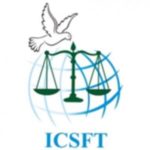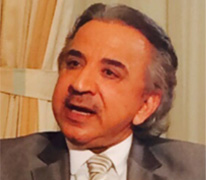We call for accountability now- Bahrain Saudi Arabia “Are we all together – or do we fall together?”
On Wednesday morning, 8th March, the Human Rights Council opened its session with a presentation of the annual report by the High Commissioner for Human Rights. Mr Zeid Ra’ad al Hussein gave some insightful remarks on the current deteriorating human rights situation in the Middle East, in particular Bahrain, and condemned once again all violent and atrocious acts against human rights defenders and dissidents. He highlighted the importance for governments and institutions to stand together, in order to assure human rights protection and peace-building.
In addition, Special Rapporteur, Mr Michel Forst expressed his deep concerns about human rights defenders in the Gulf Region and urged to take action against governments reprisals. The High Commissioner in his address during the interactive dialogue also stressed that “civil society, human rights defenders, journalists and media professionals are being methodically silenced by arrests, prosecutions, travel bans, closure orders and severely punitive financial measures”. However, Egypt is not the only country in the Middle East; amongst others Kuwait, Saudi Arabia, Yemen and Bahrain are also major actors oppressing the rights and work of human rights defenders. For instance, human rights activist Dr Abdulhameed Dashti was sentenced to ~50 years in prison by these government for having spoken in favour of human rights protection. Nabeel Rajab, a Bahraini human rights activist and opposition leader, was arrested again in 2016, after numerous arrests between 2012 and 2015, for publishing a tweet against the government of Bahrain and has been sentenced to ~18 years in prison.
In his report, the High Commissioner, rightfully so, focused on the growing human rights violations in Bahrain and the endless constraints on civil society and human rights defenders. He reminded the government of Bahrain that “this repression will not eliminate people’s grievances; it will increase them” and urged it to act in favour of the protection of human rights and to allow the High Commissioner’s office alongside the Special Procedures mandate holders to visit the Kingdom. The government of Bahrain closed access to the UN Special Procedures mandate holders since 2006. He expressed regret and disappointment towards Saudi Arabia for still being part of 90% of those countries accountable for executions around the world. Furthermore, he also mentioned the shocking executions held at the beginning of 2017 by Bahrain and called to put an end on these “retrograde trends” by implementing moratoria and abolishing death penalty.
Countries such as Germany, Switzerland, Australia and the Netherlands came to support the High Commissioner’s report on Bahrain and called on all countries to stand with his office’s mandate and against governments’ reprisals on human rights defenders. Although the UK allied itself with the EU countries in denouncing death penalty and human rights violations, it is important to remember the ~£2m funds provided for the Bahraini government to continue its unforgiving acts of violence against its citizens.
On the other hand, GCC countries rejected the report of the High Commissioner and denied the reality on the ground, blaming the High Commissioner for his lack of research skills and contradicting their truth – flawless human rights record and progressive reforms in the region. Further, they called the Human Rights Council “a platform to launch accusations”. In keeping with the tradition of denial, they claimed the full respect and continuous implementations of international human rights standards. Meanwhile, torture and restrictions on freedom of religion, assembly and expression remain to be the norm in these countries.
Facts, in 2017 Bahrain executed 3 people for the first time in 6 years. Prisoners of conscience are held at Dry Dock Prison and Jaw Prison complaining torture and ill treatment. Furthermore, Bahrain has closed access for United Nations Special Procedure mandate holders to visit the country and there are around 7 outstanding requests from special rapporteurs still pending since 2011.
ICSFT strongly denounces the growing human rights violations and calls for the government of Bahrain to stop these barbaric acts and bring the authors of these violations to justice. Half-truth and denial are not the answer for the consistent demand for political and human rights reform. As such we urge the government of Bahrain to implement the pending recommendations, open its doors and allow the United Nation Special Procedure mandate holders to visit the country. Bahrain and his allied parties, in particular Saudi Arabia, have to be held accountable.


